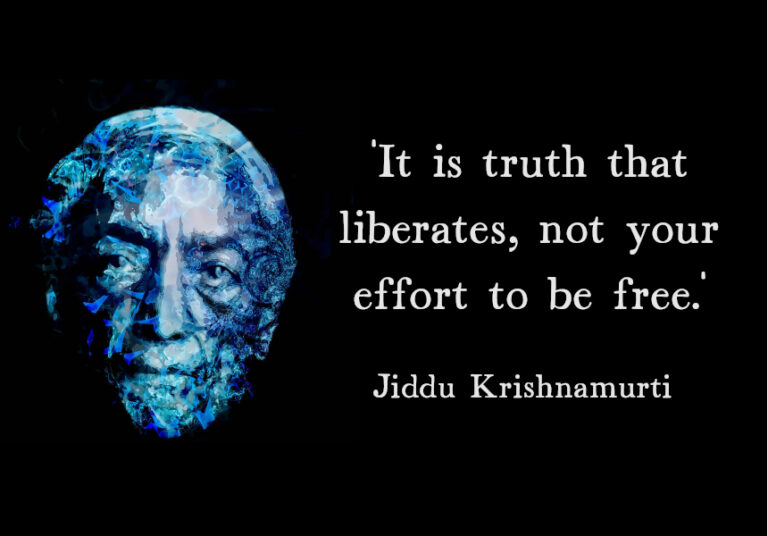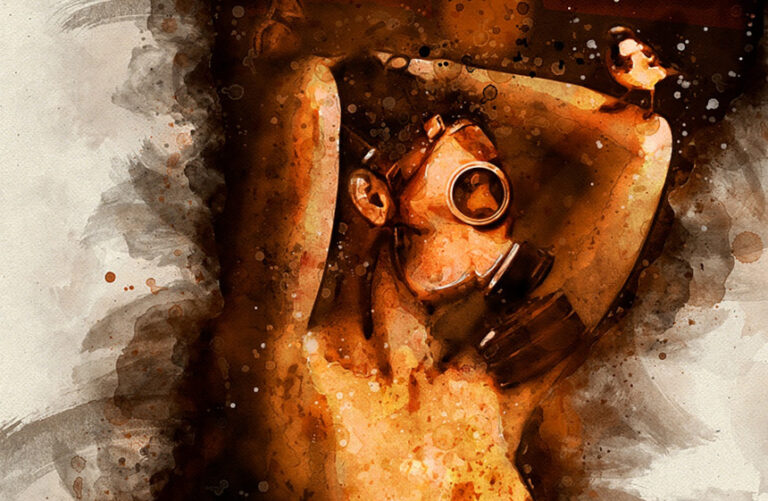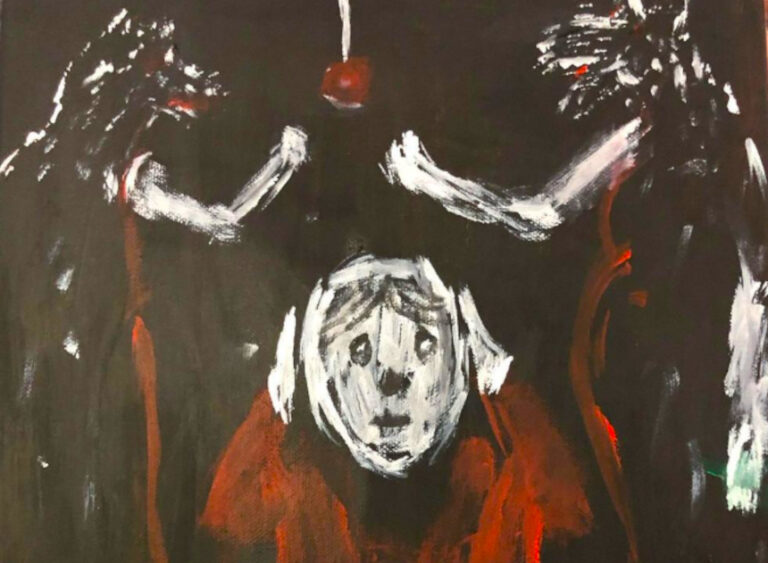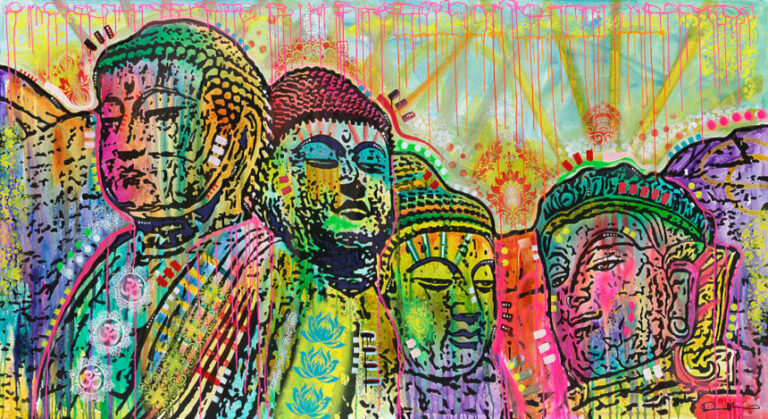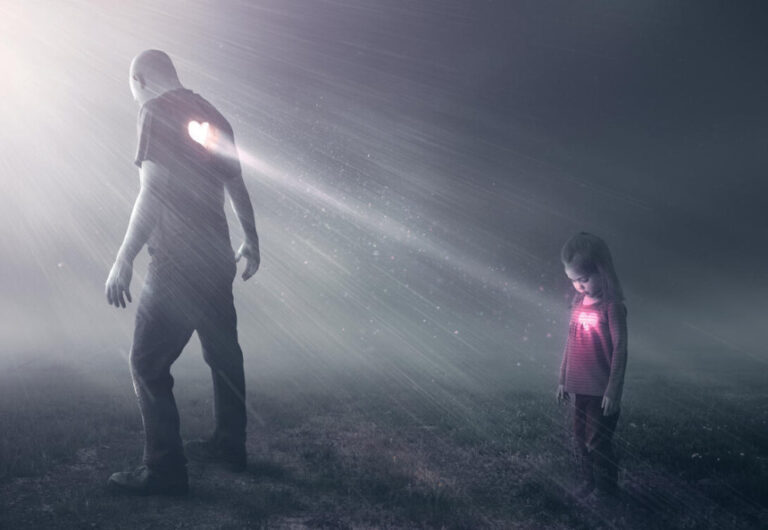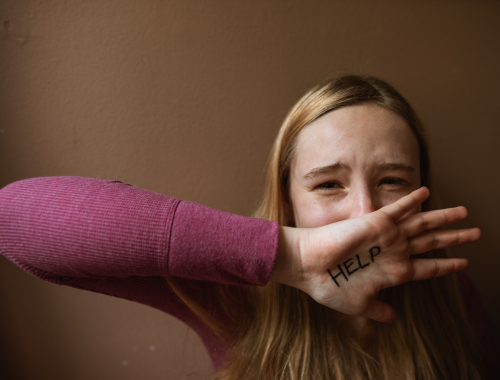“To conquer oneself is a greater task than conquering others.” ~ The Buddha
Buddhism has been humbling individuals for thousands of years. In Buddhism, it’s understood that conquering attachment begins with conquering the self. In this sense, Buddha was individuating before individuation was cool. He was self-actualizing before self-actualization was even a thing.
Nonsecular, spiritual, open minded, disciplined, skeptical, curious, and courageous, Buddhism has it all.
In the spirit of conquering the self and transforming attachment into non-attachment, here are 7 Buddhist principles to help transform the human soul.
The self is an illusion
“The self is a house on fire. Get out quickly.” ~ The Buddha
If the self is a house on fire, then non-attachment is the exalted air once you’ve escaped.
Although the self is a necessary illusion, you must still guard against the attachment to your desire regarding the self (egoism). Mindfulness meditation is a great aid in this endeavor. It clears the mind, calms the body, and opens the spirit to receiving interconnectedness.
When you’re able to strip away the brainwashed ego and the cultural conditioning, the world appears as it is—interconnected. This sense of interconnectedness will give you a direct conduit to the interdependent magic of the cosmos. And when you can tap into this magic, it transforms the way you see and interact with the world.
In a state of healthy non-attachment, you will realize that the self is nothing more than masks all the way down perceiving delusions all the way up. Your non-attachment frees you from the masks as well as the delusions. This creates a liberated state of fearlessness.
Be undaunted
“There are only two mistakes one can make along the road to truth; not going all the way, and not starting.” ~ The Buddha
Having liberated your mind-body-soul from the illusion of the self, you become a force of nature (cosmos/universe/infinity) first, a person second. You become unafraid, undeterred, undaunted. You become the tip of the spear, the sharpened edge of the Golden Ratio. The road to truth opens wide before you.
You take the first step onto the path, and the lessons learned from your deep meditations and healthy non-attachment teaches you one profound truth: always keep the Truth Quest ahead of the “truth.” The delicious irony of it all compels you forward. There is no end-state. There is no final destination, no absolute truth, no shiny heaven or fiery hell, no enlightenment, no concrete answers. The only thing is the Truth Quest.
You understand deeply, profoundly, intensely, that idleness is poison for a seeker of truth. So, undaunted, you go all the way.
Balance is the key
“To be idle is a short road to death and to be diligent is a way of life; foolish people are idle, wise people are diligent.” ~ The Buddha
Live a balanced life. This requires diligence and discipline. Understanding what the Buddha taught is an important part of that discipline.
The foundation of Buddhism is the Four Noble Truths:
1.) Dukkha: The truth of suffering: Life is suffering.
2.) Samudaya: The truth of the cause of suffering: Suffering is due to attachment.
3.) Nirhodha: The truth of the end of suffering: Attachment can be overcome.
4.) Magga: The truth of the path that frees us from suffering: Follow the Eightfold Path.
The Eightfold Path:
1.) Right View or Right Understanding: Insight into the true nature of reality.
2.) Right Intention: The unselfish desire to realize enlightenment.
3.) Right Speech: Using speech compassionately.
4.) Right Action: Using ethical conduct to manifest compassion.
5.) Right Livelihood: Making a living through ethical and nonharmful means.
6.) Right Effort: Cultivating wholesome qualities and releasing unwholesome qualities.
7.) Right Mindfulness: Whole body-and-mind awareness.
8.) Right Concentration: Meditation or some other dedicated, concentrated practice.
Then there are the four virtues. Also referred to as the brahmaviharas or the four immeasurables. They include:
1.) Metta: Loving-kindness.
2.) Karuna: Compassion.
3.) Mudita: Empathic Joy.
4.) Upekkha: Equanimity.
The effective cultivation of these disciplines will bring balance to your mind, body, and soul.
Guard against dogmatism
“If you meet the Buddha on the road, kill him.” ~ Linji Yixuan, ninth-century Chinese Buddhist
Cultivate the four noble truths, practice the eightfold path, embody the four virtues, but remain vigilant. Because even these can lead to dogmatism if you don’t also practice non-attachment. Never believe you have the answers. Keep humor ahead of hubris and curiosity ahead of certainty.
So, why kill Buddha if you meet him on the path? Because any Buddha claiming to be the Buddha is false. Any Tao claiming to be the Tao is not the eternal Tao. Similarly, you should kill any notion of self-mastery in order to continue improving your mastery; so as not to get stuck, or hung-up on your expertise.
“Entertaining a thought without accepting it” is the essence of Buddhist non-attachment. Having this ability is empowering because it keeps the human mind in an open flow relationship with reality. It keeps the mind sharp and elastic regarding its relationship with cosmos.
A mind that can observe, creatively question, and then let go of the “answers,” is a mind that is less likely to get trapped in rigid constructs of thought.
Seek the middle way
“The middle path does not go from here to there. It goes from there to here.” ~ Jack Kornfield
From potential to actual enlightenment there lies the Middle Way. The Middle Way is about wholeness, not enlightenment. It’s about being, not becoming. It’s recognizing that we are all a mighty pivot between attachment and aversion, between being and non-being, between form and emptiness, between free will and determinism.
The Middle Way pierces through the veil. It is absolute balance between opposites, neither leaning toward extremism nor nihilism. It’s epically centered. Proactively non-delusional. Excruciatingly whole.
As Sogyal Rinpoche said, “You don’t actually “become” a buddha, you simply cease, slowly, to be deluded. Being a buddha is not being some omnipotent spiritual superman but becoming at last a true human being.”
Be your own authority, think for yourself
“If you adopt an idea or perception as an absolute truth, you close the door of your mind. Attachment to views, attachment to ideas, attachment to perceptions are the greatest obstacles of truth.” ~ The Buddha
No matter where you go, there you are. Therefore, authentic non-attachment begins with honoring the self as a sacred pivot of perception. Before you can properly detach from the illusion of self, you must first accept that it is a very necessary illusion.
You must become your own authority. Doing so will honor your perception as a unique individual. It will free you from the tethers of society, unbind you from your cultural conditioning, and break the spell of your ideological indoctrination.
As Aristotle said, living in the same era as the Buddha, “Be a free thinker and don’t accept everything you hear as truth. Be critical and evaluate what you believe in.” The Buddha echoed something eerily similar from the other side of the world, “Doubt everything. Find your own light.”
Both of them were speaking toward the great importance of “entertaining a thought without accepting.”
The journey is the thing
“It is better to travel well than to arrive.” ~ The Buddha
Traveling well is being healthy, disciplined, and compassionate along the path. But it is also treating life like a glorious quest: a quest for adventure (the hero’s journey), a quest for truth (the search for knowledge and wisdom), a quest for beauty (appreciating and creating beauty).
“Arriving” will take care of itself. Focus on traveling well. The destination is overrated when the journey is the thing. And, as a bonus, the destination has a higher chance of being great the more you focus on the journey.
Make the journey the prize. When you’re focused on the journey as the prize, you’re rewarded no matter how it turns out. And you’re more likely to be doubly rewarded when it turns out well. In the game of life, the only real destination is death anyway.
So, keep going. Never settle. Stay flexible. Keep the Truth Quest always ahead of the “truth.”
As the Indian proverb states, “Life is a bridge, cross over it, but do not build a house on it.”
Image Source
Buddhist Principles

